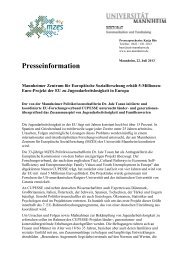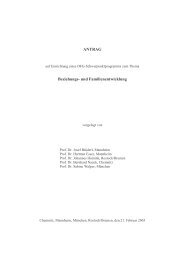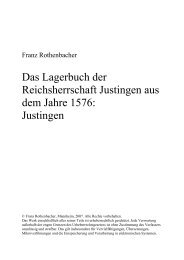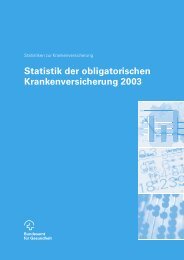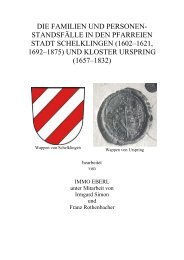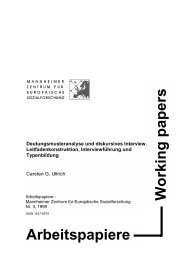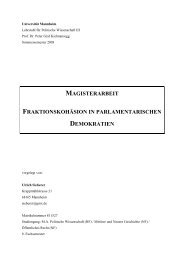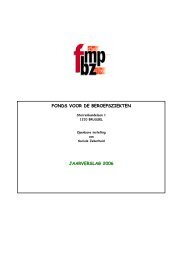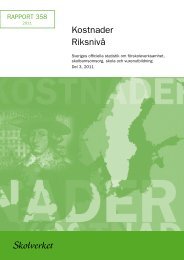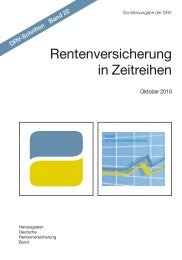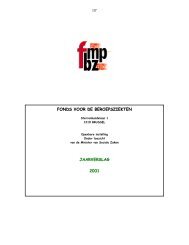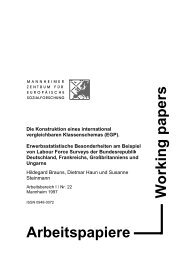Tobias Auberger and Tanja Hitzel-Cassagnes - Mzes
Tobias Auberger and Tanja Hitzel-Cassagnes - Mzes
Tobias Auberger and Tanja Hitzel-Cassagnes - Mzes
You also want an ePaper? Increase the reach of your titles
YUMPU automatically turns print PDFs into web optimized ePapers that Google loves.
3<br />
common feature: They conceive the Enlargement-process as a rather one-sided process of<br />
transformation characterised as an adjustment on behalf of the new Member States. This<br />
view relies on the notion that transformation is a pre-defined path, that it is unequivocally<br />
pre-figured <strong>and</strong> hence procedurally <strong>and</strong> substantially closed. The problem is that this view<br />
neglects, that, firstly, transformative processes will also affect the status of the (old) Member<br />
States. Therefore, enlargement implies a mutual adjustment rather than merely a onesided<br />
one. Secondly, the status quo <strong>and</strong> modus oper<strong>and</strong>i of the European Union is affected<br />
too – so it is much more plausible to regard Enlargement as a transformative process within<br />
the European Union itself. Both objections lead to the conclusion, that openness <strong>and</strong> reversibility<br />
are so far neglected – though, to our mind, systematically they are procedural features<br />
of the Enlargement process. But let us have a quick look at the problems associated<br />
with the incorporation of the “aquis communautaire” <strong>and</strong> the constitutionalisation process<br />
of the European Union.<br />
a.) Regarding the above mentioned worries about successful implementation of the<br />
“acquis communautaire”, the picture is fall less clear than stated by the critics. The<br />
development of the European Union is characterised by continuous conflicts about<br />
the substantial content <strong>and</strong> scope of law that can be qualified as being part of the<br />
“acquis”. Thus, the “acquis” itself has always been a contested concept, <strong>and</strong> its acknowledgement<br />
by the national legal orders in particular hesitant <strong>and</strong> disputed.<br />
Apart from that, there have always been conflicts about the material content <strong>and</strong><br />
meaning of the “acquis” as a body of law. The reasons for this are of various kinds:<br />
Firstly, the “acquis communautaire” is fragmented into quasi-constitutional principles<br />
of law (supremacy <strong>and</strong> direct effect on the one h<strong>and</strong>, basic <strong>and</strong> individual<br />
rights, proportionality on the other), procedural <strong>and</strong> administrative statutes, <strong>and</strong> material<br />
codes in different areas (from purely economic/competition/market-law to social<br />
<strong>and</strong> political rights like citizenship). Secondly, the legal instruments of the “acquis”<br />
are differentiated according to range <strong>and</strong> binding effect depending on the kind<br />
of legal source (treaty-law, regulation, directives, <strong>and</strong> precedents). Thirdly, <strong>and</strong> that<br />
might be the most crucial aspect, the structure of the “aquis” highly depends on a<br />
broader definition of the European Union as a functional, social or political community<br />
– these background orientations are not least determining the concept of



